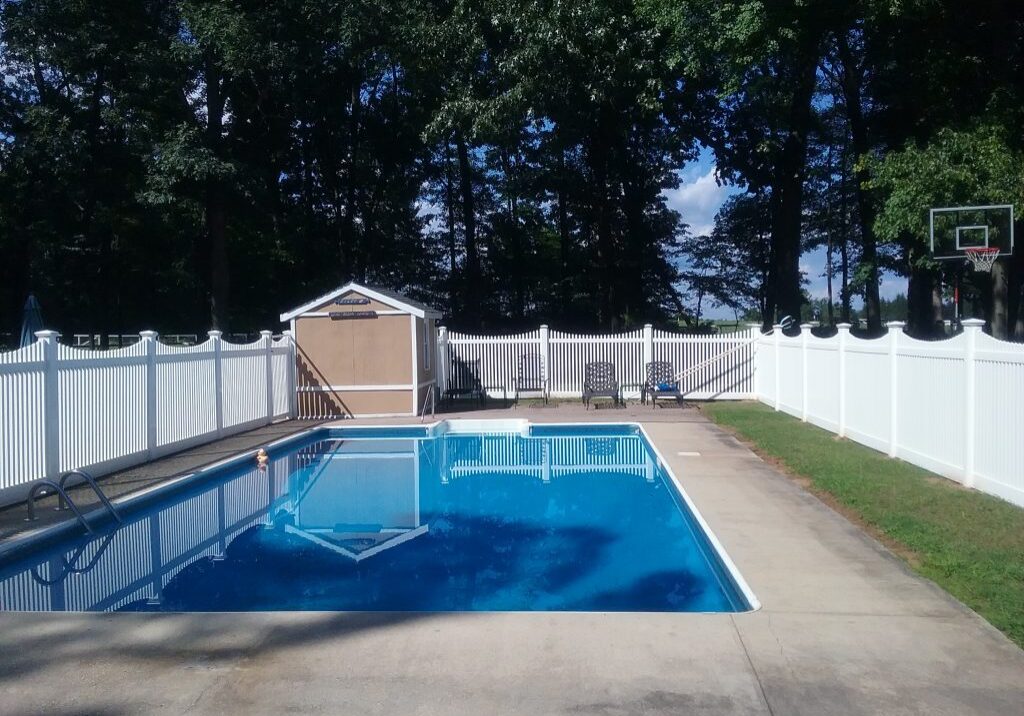All Categories
Featured

When mounting a fencing, selecting the right product is key to stabilizing performance, aesthetics, and budget plan. Wood, vinyl, and aluminum are amongst one of the most generally selected secure fencing materials, each with its strengths and downsides. This guide explores the benefits and drawbacks of these choices to aid you make an educated choice.

Timber Fence. Pros:. Natural Elegance: Wood's classic beauty can enhance any kind of residential property with its warm and classic look. Personalized: You can paint, stain, or sculpt timber to fit your style preferences. Inexpensive: Wood secure fencing is at first much more economical compared to a few other materials. Environmentally Friendly: As an eco-friendly source, wood is naturally degradable and usually taken into consideration eco-friendly. Disadvantages:. Maintenance-Intensive: Normal securing, painting, or discoloration is needed to avoid damage from weather condition and pests. Prone to Degeneration: Without proper treatment, timber can rot, warp, or split in time. Shorter Life expectancy: On standard, wood fencings last 10-15 years, depending on the kind of wood and upkeep. Timber is a wonderful option for those who value aesthetics and want to buy normal upkeep to protect its look and durability.
Plastic Fence. Pros:. Reduced Maintenance: Plastic needs very little care-- simply occasional cleaning with soap and water. Weather Resistant: It does not warp, rot, or catch insect damage, making it highly long lasting in numerous climates. Longevity: Vinyl fences can last 20-30 years with little to no repair services. Design Range: Available in a vast array of shades, textures, and designs, including wood-like looks. Cons:. Higher Initial Price: Plastic fences are extra expensive in advance compared to timber. Susceptability to Cold: In exceptionally cool weather, plastic can come to be breakable and vulnerable to fracturing. Minimal Repair Options: Matching substitute panels can be testing if damage occurs. Vinyl fencing is ideal for homeowners searching for a resilient, low-maintenance solution that supplies modern convenience.

Light Weight Aluminum Fence. Pros:. Rust-Proof: Aluminum withstands rust, making it an outstanding selection for humid or wet atmospheres. Sturdy: Regardless of being light-weight, aluminum is solid and can hold up against extreme weather. Reduced Maintenance: It requires marginal maintenance, generally just occasional cleansing. Long Lifespan: Aluminum fencings can last decades without significant degeneration. Classy Design: Typically utilized for ornamental objectives, aluminum fencing adds a sleek, innovative want to residential properties. Cons:. High First Financial investment: Aluminum fences are among the more expensive options on the market. Less Personal privacy: The open layouts common with light weight aluminum fencing don't offer much privacy. Susceptible to Damage: While resilient, light weight aluminum can dent if hit with adequate force. Light weight aluminum is an excellent option for property owners focusing on visual appeals and durability without calling for much maintenance.
Making Your Choice. When deciding in between aluminum, timber, or vinyl secure fencing, consider your priorities:
Wood suits those who appreciate a natural look and do not mind putting in maintenance effort. Vinyl is the ideal option for those seeking a low-maintenance, weather-resistant option. Light weight aluminum offers smooth design and resilient longevity however might lack privacy. By meticulously assessing these products' functions, you can choose a fencing that matches your building while satisfying your aesthetic and practical requirements.
Latest Posts
Benefits of NAPA AutoCare? Montclare Auto Repair Delivers the Best Service
Published Apr 20, 25
2 min read
Protect Your Future with WyHy's Unique Certificate Options
Published Apr 20, 25
1 min read
Protect Your Building with Washington Fence's Costs Products
Published Apr 20, 25
1 min read
More
Latest Posts
Benefits of NAPA AutoCare? Montclare Auto Repair Delivers the Best Service
Published Apr 20, 25
2 min read
Protect Your Future with WyHy's Unique Certificate Options
Published Apr 20, 25
1 min read
Protect Your Building with Washington Fence's Costs Products
Published Apr 20, 25
1 min read